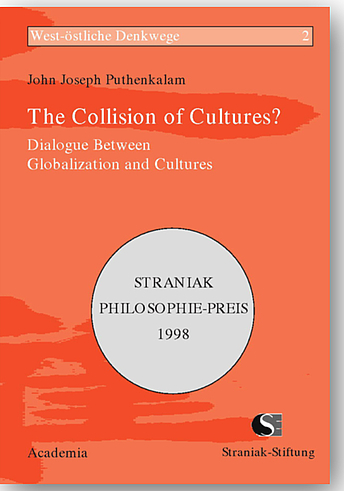Puthenkalam
The Collision of Cultures?
ISBN 978-3-89665-191-4
Der Geist menschlicher Zivilisation lebt weiter in der Entfaltung neuer Kulturen. Das kulturelle Erbe stellt sich uns in Form philosophischer Systeme dar. Jede Nation entwickelt und vereinigt in sich eine ihr wesentliche Denkweise. Spielte sich die Globalisierung der Kulturen und der Philosophie(n) zunächst im Geiste der Religionen ab, so war es der Geist des Imperialismus und des Kolonialismus, der das zweite Jahrtausend bestimmte. Heute, im dritten Jahrtausend, steht die Entwicklung ganz im Zeichen der wirtschaftlichen Globalisierung. 'The Collision of Cultures?' versucht eine Betrachtung und Würdigung allen menschlichen Strebens. Der Autor übernimmt den Versuch, die ost-westlichen Denkweisen zu bereichern und die Forschung voranzutreiben, die sich mit der Globalisierung im 21. Jahrhundert im Kontext aller früheren Kulturen, in die wir hineingeboren und verwurzelt sind, beschäftigt. The spirit of human civilization continues to live in evolving cultures. Cultural stories are presented to us in philosophical systems. Every nation develops and integrates a way of thought into its being. While the first millennium saw the globalization of cultures and philosophies on the wheels of religion, the second millennium saw the globalization of politics and power on the wheels of economic globalization. 'The Collision of Cultures?' is a reflection and an appreciation of all human endeavors. As the subtitle shows, it is a 'Dialogue Between Globalization and Cultures?'. We hope that this book will enrich not only the East-West ways of thought, but will enhance the inquiry about twenty-first century globalization in the context of all preceding cultures into whose bosom we are born and in whose cradle we live.


